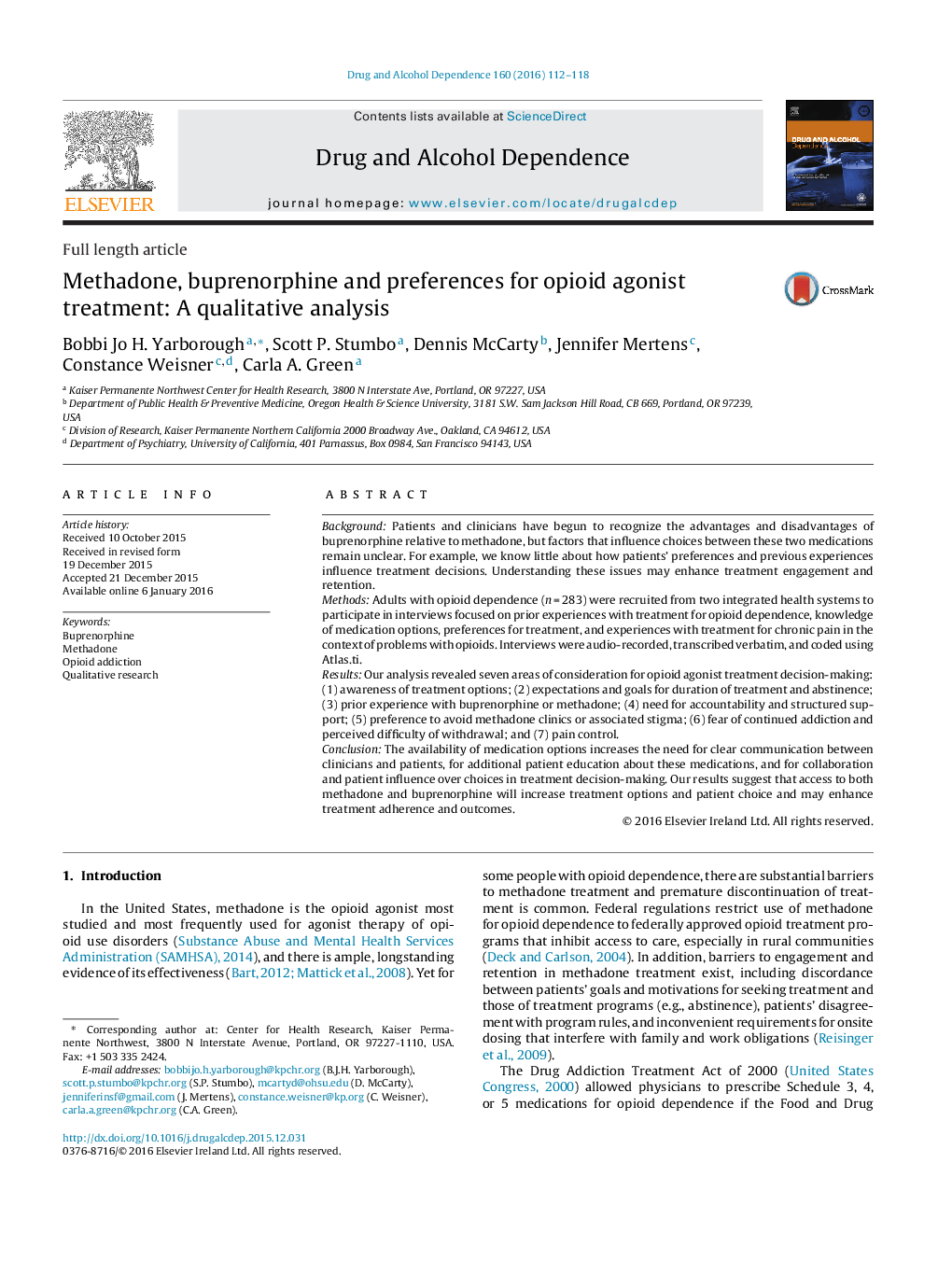| Article ID | Journal | Published Year | Pages | File Type |
|---|---|---|---|---|
| 1069712 | Drug and Alcohol Dependence | 2016 | 7 Pages |
•Many participants were unaware of opioid addiction treatment options.•Clear communication about treatment options and preferences is needed.•Involving patients in treatment decisions may improve opioid addiction outcomes.
BackgroundPatients and clinicians have begun to recognize the advantages and disadvantages of buprenorphine relative to methadone, but factors that influence choices between these two medications remain unclear. For example, we know little about how patients' preferences and previous experiences influence treatment decisions. Understanding these issues may enhance treatment engagement and retention.MethodsAdults with opioid dependence (n = 283) were recruited from two integrated health systems to participate in interviews focused on prior experiences with treatment for opioid dependence, knowledge of medication options, preferences for treatment, and experiences with treatment for chronic pain in the context of problems with opioids. Interviews were audio-recorded, transcribed verbatim, and coded using Atlas.ti.ResultsOur analysis revealed seven areas of consideration for opioid agonist treatment decision-making: (1) awareness of treatment options; (2) expectations and goals for duration of treatment and abstinence; (3) prior experience with buprenorphine or methadone; (4) need for accountability and structured support; (5) preference to avoid methadone clinics or associated stigma; (6) fear of continued addiction and perceived difficulty of withdrawal; and (7) pain control.ConclusionThe availability of medication options increases the need for clear communication between clinicians and patients, for additional patient education about these medications, and for collaboration and patient influence over choices in treatment decision-making. Our results suggest that access to both methadone and buprenorphine will increase treatment options and patient choice and may enhance treatment adherence and outcomes.
